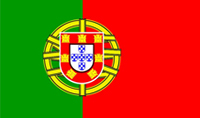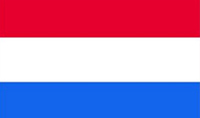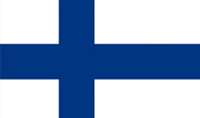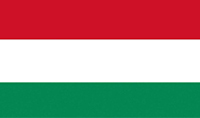Q&A for Clients
As a member of the Executive Council of the Translators Association of China (TAC), TW Translation Service is dedicated to providing quality and efficient services that cover different languages and fields, including:
Translation, interpreting and localization;
Professional proofreading, polishing and typesetting of translations;
Audio/video transcription and recording, dubbing and caption-making related to interpreting, and;
Programming and testing services related to localization.
Alongside recent technological developments, many diversified methods of accessing, transmitting and delivering files have emerged. TW Translation Service prefers its clients to directly provide digital files that can be edited. It is best to use digital files to facilitate file management as well as communications between TW Translation Service and its clients, and maximize work efficiency. Under special circumstances, clients can transmit electronic documents through file-accessing platforms (for example Baidu NetDisk or Baidu Cloud), or through instant messaging software (such as WeChat or QQ), or deliver paper documents through express delivery or registered mail, or transmit electronic documents in different formats through other electronic media such as CDs, USB flash drives or portable hard drives.
Contact Info:
- Landline Phone No.: 010-8809 9858
- Fax: 010-8809 9828
- Email: translation@oktranslation.com
- WeChat:
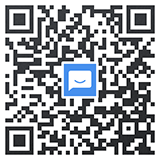
- Address: 3rd Floor, China Tianli Mansion, 56 Zhichun Road, Haidian District, Beijing
- Post Code: 100086
The main advantages of TW Translation Service are as follows:
- A lean team: 90% of TW’s translators and interpreters hold professional titles at or above mid-level or translation and/or interpreting certificates at or above mid-level, in addition to 50-plus experts in different languages serving as advisors.
- Efficient organization: A work team comprised of members with professional backgrounds and corresponding language competency can be organized and assigned to deal with the client’s requirements in a timely manner. Led by an experienced project manager, the team analyzes the key points and potential difficulties of the project and then holds further discussions in cases of emergencies or other special circumstances, so that the team can fully control the progress of the project and make timely adjustments.
- Rigorous quality control: TW Translation Service examines the implementation of all links involved in a project in strict accordance with the Specification for Translation Service, and makes corrections if any problems are discovered. TW also takes into account the client’s different requirements for each specific project and works hard to meet every expectation and requirement of its clients under the precondition that the translation quality meets or exceeds the Specification for Translation Service.
- Rich experience: Since its establishment in 2003, TW Translation Service has completed more than 20,000 national-level key projects and other projects that entail high quality requirements. More than 1,000 books and periodicals TW has translated from Chinese into foreign languages or vice versa have been published. As TW Translation Service has accumulated rich professional knowledge and experience, it is capable of professionally and expertly undertaking and handling projects with a wide range of requirements.
- Flexible settlement: TW Translation Service can settle accounts in different forms in accordance with the client’s specific conditions.
For infrequent clients or any clients that are contacting TW Translation Service for the first time, the final service price will be decided according to the difficulty of the project’s topic area, total number of words, the complexity of the required typesetting and the deadline. The schedule and specific requirements will be taken into consideration when deciding the final service price for an interpreting project.
Different criteria are used for determining the translation price in different countries and regions. For example, some countries/regions base the translation price on the source-language wordcount, some base on the target-language wordcount, others on the amount of time taken to complete the translation, and still others on the number of pages.
TW Translation Service calculates the price of translation in accordance with GB/T 19363.1-2008 Specification for Translation Service: Part I: Translation, with the number of 1,000 Chinese characters (not including spaces) as the uniform unit for calculating the price without exception. Specifically speaking, the number of characters (not including spaces) as displayed in “Word Count” in the “Toolbars” in Microsoft Word should be used as the number of characters. Where the number is less than 1,000 characters, the number of characters is calculated as 1,000 characters. In cases of paper documents or scanned paper documents, the total number of characters is calculated by multiplying the characters in a standard horizontal line and the number of lines per page. Where the line length is shorter or a title occupies a line, the line is still counted as a standard line.
For projects that require translating a foreign language into Chinese, the project team member estimates the number of characters and the charges based on the style of writing, content and characteristics of the project so that the client can have a clear idea of the estimated price. The actual price is calculated based on the actual number of Chinese characters after the project is completed.
For projects that require translating a foreign language into another foreign language, the charge for translation is usually calculated based on the number of source words or characters. The charge for translation may be decided through negotiation under special circumstances.
For projects that require translating a document such as a testimonial or a certificate, the price for translation is usually calculated per document or per page, or in accordance with the unit decided by both TW Translation Service and the client through negotiation.
TW Translation Service provides translation services in nearly 30 languages including English, French, German, Russian, Spanish, Portuguese, Italian, Dutch, Sweden, Hungarian, Japanese, Korean, Mongolian, Thai, Cambodian, Lao and Arabian. TW has completed projects in more than 20 different fields, including literature, culture, history, social science, education, art, film and television programs, law, finance, architecture, telecommunication, electric power, medicine, machinery, petroleum, chemical industry, environmental protection, patents, publishing and tourism.
TW Translation Service provides expedited translation services subject to charging a corresponding expediting fee. However, clients are not suggested to use expedited translation service if the project involves highly specialized knowledge and/or entails especially demanding requirements for quality.
For a project that is of relatively general interest and easy to understand, a translator working for TW Translation Service can translate at a speed of 2,000–3,000 Chinese characters per day. For a project that falls into a field that TW Translation Service is adept at, and that is entrusted on a workday, TW Translation Service can translate it at a maximum speed of 20,000 Chinese characters per day when there are enough translators and it is workable to arrange the translation project between them.
For a file that contains no more than 10,000 words, it is not suggested to ask more than one translator to complete it. TW Translation Service usually arranges one translator to complete the translation to preserve the consistency of the translation. Clients who have high expectations for translation quality are strongly suggested to leave enough time for translation so as to effectively minimize errors or mistakes and ensure the accuracy and smoothness of the translation.
Based on its years of experience, TW Translation Service strongly suggests the following coordination from its clients before, during and after the translation to achieve the best results:
- Before the translation: The client should list the requirements for translation one by one, such as correct renderings of proper nouns, specific terms with existing or preferred translations, and style of translation, and provide examples or similar examples for these. The client is kindly required to provide supplementary glossary or reference documents before the translation task is started so as to ensure that the translation is completed to requirements. If the source text can be edited from the perspective of the client to be more suitable for translation, then this editing of the source text would further improve translation efficiency and quality.
- During the translation: If the source text is too abridged, or logically unclear, or ambiguous, or inconsistent, or contains printing mistakes, it may cause deviation in the translator’s understanding. In such cases it is necessary for the client to make timely clarifications or further explanations. The client is required to finalize the source text again if there exist conceptual mistakes or common-sense errors in the source text. The source text will not be translated until the errors or mistakes are eliminated.
- After the translation: If a client is not satisfied with the translation quality or does not agree with part of the translation, the best way for the client to communicate with TW Translation Service is to list specific disagreements or suggestions one by one, or deliver the revised translation (in whole or in part) to TW Translation Service. The project team members would then make careful analysis and comparisons to identify the problems and then exchange ideas with the client before deciding how to adjust the translation.
Translation software falls into two categories—machine translation software and computer-aided translation software.
Despite the considerable progress made in the field of machine translation, it should be noted that the accuracy and the quality of translation relies upon a number of indispensable specific factors. Even if machine translation were to be adopted, it would also still be necessary for texts to undergo strict examination by a trained translator, or else it would be impossible to fully ensure the translation quality. TW Translation always stresses integrating the advantages of individual translators with technological development; on the other hand it accords importance to leveraging the advantages of these technologies while remaining aware of, and learning to work around, their weak points.
Computer-aided translation (CAT) software includes TM technology, electronic dictionaries, network tools, and other kinds of applications and electronic corpora. TW Translation Service advocates the use of CAT as a supplementary tool for assisting translators in translation and quality-checking.
Confidentiality is an issue facing all lines of trade, and it is all the more conspicuous in the translation industry.
The translation industry is characterized by “keeping up with the times.” Those involved in a translation project are always exposed to any sensitive information contained within the project ahead of many others. It is therefore reasonable for a client to want to keep the project information confidential. It is due to such a necessity that confidentiality has become the most important part of the professional code of ethics in the translation industry.
TW Translation Service signs non-disclosure agreements with each of its staff members, stressing that keeping confidentiality is both an occupational obligation and a legal duty. TW Translation Service has adopted a series of management measures for keeping the project materials confidential to ensure that all documents involved are exposed to as few people as possible. In the process of implementing a project, both TW Translation Service and the client may reach a special agreement or formulate a set of confidentiality measures accepted by both parties if the client raises still higher requirements for confidentiality.








